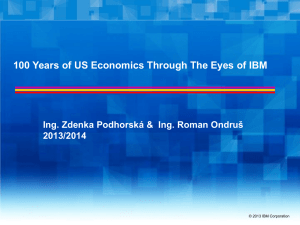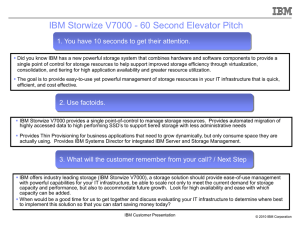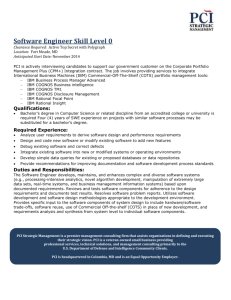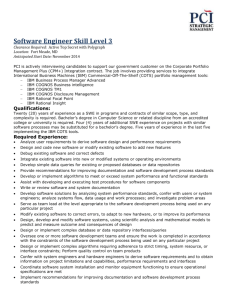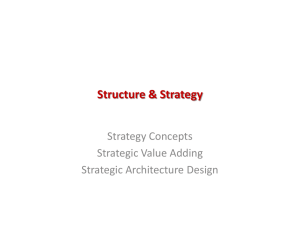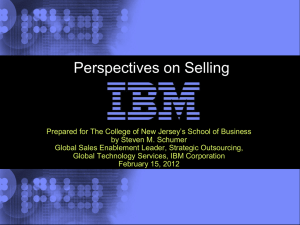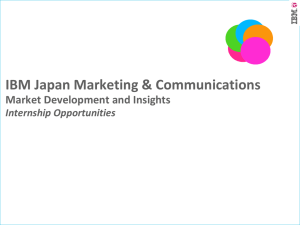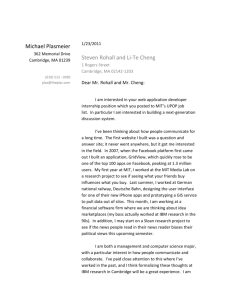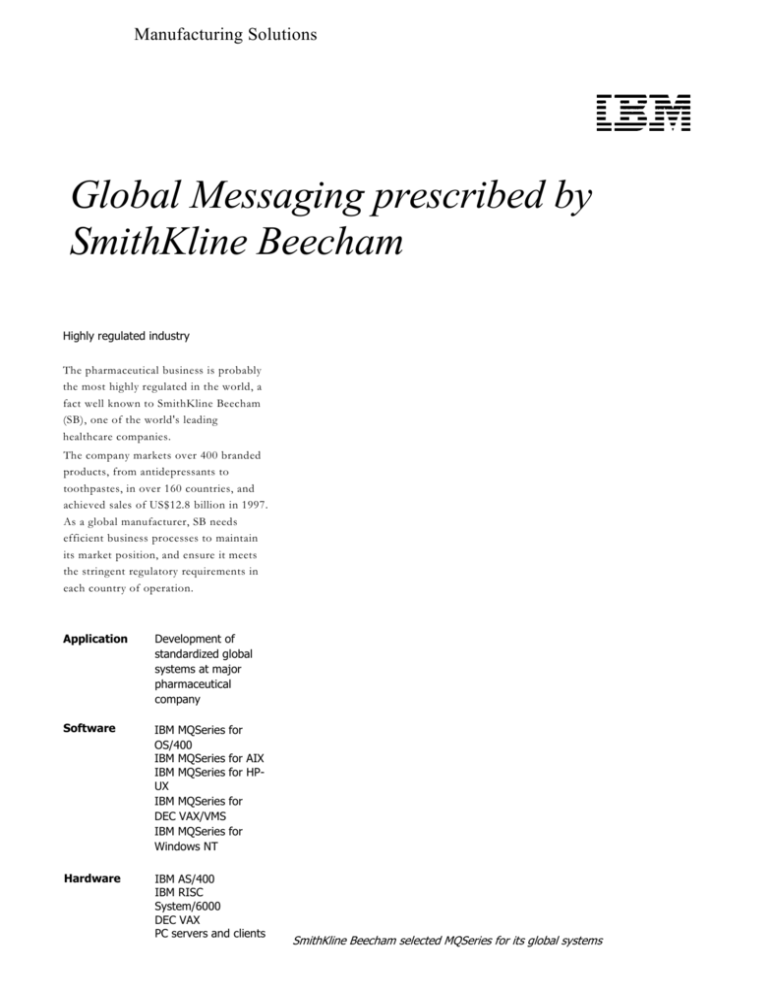
Manufacturing Solutions
Global Messaging prescribed by
SmithKline Beecham
Highly regulated industry
The pharmaceutical business is probably
the most highly regulated in the world, a
fact well known to SmithKline Beecham
(SB), one of the world's leading
healthcare companies.
The company markets over 400 branded
products, from antidepressants to
toothpastes, in over 160 countries, and
achieved sales of US$12.8 billion in 1997.
As a global manufacturer, SB needs
efficient business processes to maintain
its market position, and ensure it meets
the stringent regulatory requirements in
each country of operation.
Application
Development of
standardized global
systems at major
pharmaceutical
company
Software
IBM MQSeries for
OS/400
IBM MQSeries for AIX
IBM MQSeries for HPUX
IBM MQSeries for
DEC VAX/VMS
IBM MQSeries for
Windows NT
Hardware
IBM AS/400
IBM RISC
System/6000
DEC VAX
PC servers and clients
SmithKline Beecham selected MQSeries for its global systems
In 1997 the company decided to
standardize its business processes
worldwide - and ensure all of its computer
systems are Year 2000 compliant. The
UK-based Global Services Group of the
company's Information Resources
division was given the task of supporting
these standardized business processes on a
worldwide basis using a single technology
infrastructure.
Requirement for integration
Global Services is responsible for
creating, delivering and supporting
systems that have a major global
significance, and require a high degree of
integration across multiple sites.
Examples include accounting systems,
MRP, forecasting and financial transfers
between businesses.
In April 1997, the group set out a strategy
based on messaging technology as part of
a new Global Messaging System
enterprise (GMSe) project. Having given a
commitment to the business to rollout the
first standardized systems in just six
months, the group needed a proven and
dependable solution that could be
implemented across multiple platforms in
160 countries. The solution they chose
was IBM MQSeries messaging
middleware.
chain. We have to prove that our systems
can perform this tracking very reliably.
Producing all that audit documentation is
very time-consuming. Being able to
undertake that centrally with standardized
systems means we do it just once and
then ship it out for
local variations."
In replacing legacy with Year 2000compliant systems, SB had an unknown
number of point-to-point interfaces
between its different systems, which had
never been catalogued. Gerry Fitzgerald,
GMSe Manager, said: "It took us 15
years to build them, and with this project
we had just 15 months to replace them
all! It was obvious that the approach we
had taken in the past simply would not be
viable."
Why messaging?
When SB first started looking at the
problem of global systems integration it
wasn’t the same coherent organization it is
today. European operations looked after
finance, while different factory
organizations were managing BPCS, so
the challenge was defining the standards
for information flow between the
different entities.
SB operates primarily on IBM AS/400
and Windows NT platforms
(approximately 100 of each located
worldwide) plus around 30 DEC
VAX/VMS servers and other
platforms used in certain countries.
Key applications include SSA’s BPCS
for manufacturing and JD Edwards
for financial accounting.
"The big driver behind GMSe was
changing the process by which the sales
and marketing organizations interact with
the plants;" said Fitzgerald. "Having a
uniform procedure for forecasting, placing
orders, moving product around the globe,
and regulatory registration was where we
saw the biggest value. People in the
organization had been doing things the
same way for 20 years, and all of our
methods were built around those old
processes. That had to change for the
business to move forward."
The fact that all of these disparate systems
had to be ready for the Year 2000 date
change offered a unique opportunity.
Chris Jones, Director of Global
Messaging, explained: "Because Year 2000
inventories had to be done anyway, the
idea of standardizing at the same time
became more appealing. The other key
factor was regulatory control. As a
pharmaceutical company we have to
prove to regulatory authorities that we can
track everything we do. For example, if
we need to recall a product, we have to
know where it was manufactured, where it
was shipped to, the batch numbers, and
where the batch is in the supply
There were two technologies that the
company believed could support that
change - traditional EDI (Electronic
Data Interchange) and messaging.
Fitzgerald added: "EDI had a major flaw
because it didn’t give us the tools to do
near real-time information flow, or
support the range of transactions we
needed. There were a lot of standard
packages that could support standard
EDI out of the box, but in the end it
was more talk than reality. Messaging in
the form of MQSeries offered a
foundation for solving the problem
within a single infrastructure."
Disparate systems
MQSeries wasn't completely new to the
company. In the previous year it had
evaluated shopfloor integration on an
AS/4100 platform and, after looking at a
number of options including
DecMessageQ and object brokers.
concluded that the only messaging
tool that could do the job was MQSeries
for OS/400. "MQSeries had earned a
good reputation in the company and we
decided it was perfect for this global
project.”
MQSeries was also able to accommodate
all of the different platforms and
operating systems used by the company,
includ1ng OS/4100, AIX, Windows N'I',
H P-UX and DEC VAX/VMS.
Series of hubs
MQSeries offered SB two key capabilities:
l. A clearly defined API (Application
Programming Interface) that could be
assimilated very quickly.
2. The ability to set up systems that
could be managed globally.
In terms of architecture, SB set up a series
of hubs. Essentially (every SB application
platform sends messages to a hub, which
consists of MQSeries and CAI’s TDM,
which looks at the addressing content of
the information and fires it on to the
appropriate destination. SB has around 30
of these hubs around the world.
The first systems to be up and running
were in SB's factories, linking DEC VAX
Alpha laboratory systems to IBM AS/400s
running BPCS. "That was an important
milestone - most people didn't actually
believe we were going to make it, but we
did," said Jones.
Indeed, such is the success o1 the rollout
so far that the country operations are
now asking if MQSeries can be used to
integrate ether local applications.
“Everyone who has become involved
with MQSeries loves it;' added ,Jones.
State of flux
Year 2000, according to Jones, will see an
acceleration of the rate of Industry
consolidation. "'As we grow our messaging
infrastructure will be a major benefit
because we have information handling and
transformational capabilities to integrate
with other organizations in our operations
with less knock-on impact. We have the
ability to effect business organization
change, without rebuilding our systems.”
Fitzgerald added: "We are doing all the
Year 2000 certification centrally and
migrating that to our systems worldwide.
The basic core work and documentation
will give us huge savings worldwide in
regulatory compliance and Year 2000
overheads. The country operations give
up some local control, but the benefits
will far outweigh that."
In terms of support, I,ogica, an IBM
BESTeam partner, was heavily involved in
the development and implementation of
MQSeries at SB. "We can't praise enough
the help and support we have received
from I,ogica. Their people really know
MQSeries and helped us to maximize the
benefits of using it," said Jones.
He concluded: "MQSeries is a very
powerful tool -- it has given us everything
we hoped for.”
SB is currently undertaking an eight-month
global deployment process. The total
GMSe rollout is due to be completed by
October 1998 and will see MQSeries
implemented on 250 systems, including
application servers and hubs. "When you
are transferring drugs between countries,
and large amounts of money between
different businesses, the systems have got
to be 100 per cent bullet-proof - no
mistakes, and nothing less. We have a
managed MQSeries environment, so it
won't fall over today, or- tomorrow," said
Fitzgerald.
SmithKline Beecham’s UK-based Global Services
For more information
please contact
IBM Marketing Representative or
IBM Business Partner.
The IBM software home page
can be found on the Internet at
http://www.software. ibm.com
The MQSeries software home page can
be found on the Internet at http://www
software.ibm.com/ts/mgseries
© International Business Machines Corporation
1998
Produced by TS Marketing
IBM United Kingdom Limited
Hursley Park
Winchester Hampshire
S0212JN
Tel: + 44 (0) 1962 815000
9-98
This brochure illustrates how one customer uses
IBM products. Many factors have contributed to the
results and benefits described. IBM does not
guarantee comparable results. IBM does not attest
to, or warrant, the accuracy of information provided
by customers or IBM business partners. Reference
to IBM products or services does not imply that IBM
intends to make them available.
The following terms and trademarks are registered
trademarks of IBM Corporation in the United States
and/or other countries.
IBM, MQSeries, OS/400, AS/400, AIX,
RISC System/6000.
Windows NT is a trademark of Microsoft
Corporation.
HP-UX is a trademark of Hewlett-Packard
Corporation.
VAX and VMS are trademarks of Digital Equipment
Corporation.
BPCS is a trademark of SSA.
All other products are trademarks or registered
trademarks of their respective companies.
All rights reserved.
Printed in Denmark by Phonix-Trykkeriet A/S
Certified Quality System ISO 9001/EN 29001
and Environmental Certificate ISO 14001
G511-4301-00

